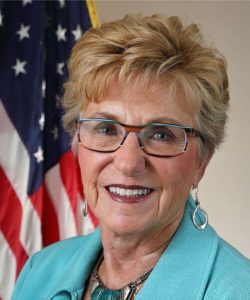LEWISBURG, W.Va. – The West Virginia School of Osteopathic Medicine (WVSOM) will receive $500,000 from the Appalachian Regional Commission (ARC) to make it easier for individuals in Greenbrier County with substance use disorder to attain and maintain employment.
Through ARC’s Investments Supporting Partnerships In Recovery Ecosystems (INSPIRE) Initiative, WVSOM’s Center for Rural and Community Health (CRCH) will receive $250,000 per year for two years to implement a project called Connecting the DOTS: Developing Opportunities for Transportation Ecosystems. The project will address barriers in Greenbrier County’s recovery ecosystem, including access to reliable transportation, available child care and supportive mentoring, and provide targeted training involving local employers and workers in recovery.
The grant will allow WVSOM’s CRCH to partner with Mountain Transit Authority, a public transportation service that operates in five counties in southeastern West Virginia, to develop, implement and coordinate a transportation service and expanded bus routes for people in recovery to travel for workforce-related needs.
Additionally, the school will partner with the Rupert, W.Va.-based Meadow River Valley Early Childhood Learning Center, also known as the Marvel Center, to implement a workforce mentoring program for those in recovery. Experts will work with local businesses to offer targeted workforce training for hiring and supporting individuals in recovery. WVSOM expects to serve 40 workers and five businesses through the program.
The project will assist adults 18 and older who are in recovery and unemployed or underemployed.
Drema Hill, Ph.D., WVSOM’s vice president for community engagement and chief operations officer, said the grant will help WVSOM’s CRCH make a difference in the lives of individuals in recovery.
“This award will have a direct and powerful impact on individuals living with substance use disorder who seek recovery services as they prepare to return to the workforce,” Hill said. “Transportation, child care and supportive services are the greatest barriers to successful employment, and this funding will help to alleviate those barriers. We are proud to partner with the Appalachian Regional Commission to positively impact the lives of people with substance use disorder.”
Connecting the DOTS is one of 43 projects for which the ARC awarded nearly $14 million through its INSPIRE Initiative, which aims to address the substance use disorder crisis in Appalachia through investments in projects that create or expand services in the recovery ecosystem leading to workforce entry and reentry.
Gayle Manchin, ARC federal co-chair, said the organizations receiving the INSPIRE grants are playing a role in helping Appalachia residents reclaim their lives after being impacted by substance use.
“At ARC, we know that substance use disorder recovery isn’t a singular event, but a continuum. Both workforce training and ending the stigma surrounding substance use disorder are equally important in providing a renewed sense of hope and purpose to Appalachians in recovery,” Manchin said. “These INSPIRE grantees are doing the important work to remove barriers to entry when it comes to recovery-to-work projects across the region, ensuring that all Appalachians have a chance at a bright future.”
James W. Nemitz, Ph.D., WVSOM’s president, thanked the ARC for supporting the CRCH’s efforts to help areas that have been hit hardest by the substance use epidemic.
“I’m appreciative to the Appalachian Regional Commission for giving us the funds to build programs we believe will improve West Virginia’s communities by making it possible for people in recovery to return to employment,” Nemitz said. “Work plays an important role in personal fulfillment because it provides a sense of purpose, and a healthier, stronger workforce benefits us all.”
WVSOM is a national leader in educating osteopathic physicians for primary care medicine in rural areas. Visit WVSOM online at www.wvsom.edu.










